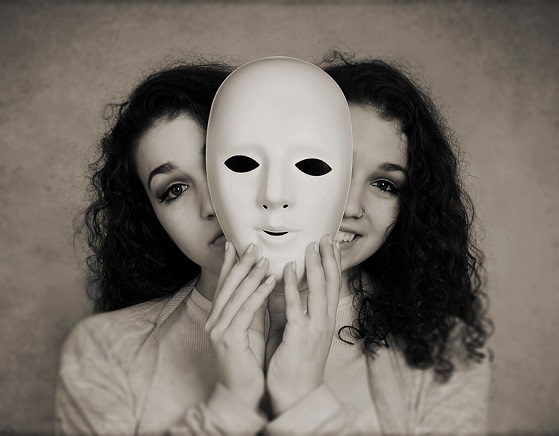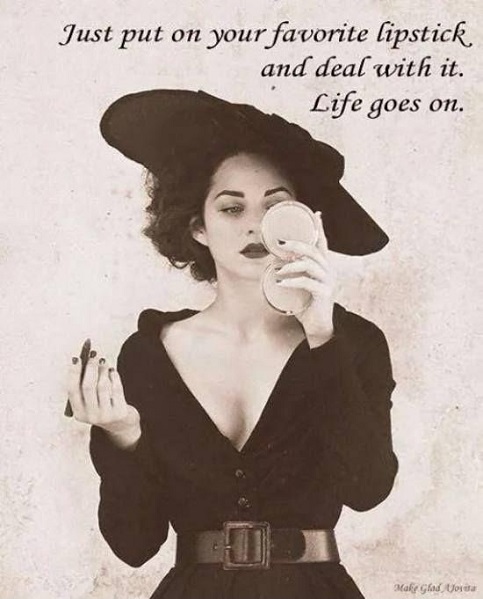‘How Are You Really Doing’ Is Not a Rhetorical Question.

{source}
In honor of World Kindness Day: November 13. Dedicated to my close friends and acquaintances who have passed to suicide, the silent killer.
As Rumi says, “There is a voice that doesn’t use words. Listen.” As a logophile and poet myself, I was fascinated to learn that silent and listen have the same letters in them. Have you listened to how lonely people are lately? It’s all over the news. They feel isolated and trapped for many reasons. Their fuse blows and their knee-jerk reactions get the best of them, because well, they don’t feel heard.
Are you listening to your soul or your ego? Is anyone listening to you?
During the Kali Yuga, suicide rates are high, depression and anxiety diagnoses are soaring, and many of us think we can access the state of another human being’s mood by checking their social media accounts. Many of us, including myself, think we don’t have the time to detect another friend’s well-being.
Clicks, swipes, selfies are just deflecting a genuine need for real face-to-face connections, the old-school FaceTime. In my first book PurgeAtory, one of my key themes and non-rhetorical questions is, “How does anyone really know if they really know someone?” As we find filters, posts, and pictures more appealing, how are we connecting heart to heart (our hearts being our true real-time faces)?
In a recent interview, Meghan Markle cried because the British press sincerely asked about how she was doing. One would assume being a beautiful royal princess would equate to being happy, but clearly, Meghan is suffering. Postpartum depression and exploited drama have tainted her time being a mother to a newborn.
She has become a hot topic rather than a person, a caricature with stories spinning around her authentic self.
In a world that cares more about designing narratives for those around us, slandering and gossiping freely, are we really taking the time to check in with each other honestly?
Another mother, Kerry Washington, agreed that asking someone one simple question, “How are you really doing?” in an intentional way is her definition of kindness. Otherwise, we’re just using lip service, assuming everyone’s okay by their status on social media, or by the way they look.
Kerry Washington And Meghan Markle, both mothers and actresses, appreciate the honest connection. This means being real when things are not okay.
The suicide rate has risen 33% since 1999, right around the time technology became more popular to use rather than a telephone. According to American Foundation for Suicide Prevention, 14 out of every 100,000 people committed suicide in 2017. It remains the tenth leading cause of death in the US, and the US is the one country that has rising rates whereas other countries are seeing declines.
What has changed in the fabric of our society to separate us so dramatically? The rate is exponentially growing among millennials. How can we regress back to genuine connections, rather than Kylie Jenner lipstick filters?
The question “How are you really doing?” should perhaps be a regular greeting during this time in this day and age? Misconceptions, assumptions, presumptions often become ways of feeding are perception.
An acquaintance of mine committed suicide earlier this year. Upon hearing of the news, I checked her Facebook page. Her last post on the day of suicide read, “Just put on your favorite lipstick, and deal with it. Life goes on.” This has haunted me since then. Masking ourselves and picking an identity for a day, a narrative about oneself, is a coping mechanism, but not honest living.
I’ve tried many shades of lipstick since then, and none of them have changed my day or life, only my appearance to the world. As a society, we have become more disingenuous in our interactions with each other, as political issues have caused isolation and separation, rather than joining us together as a heartfelt community, an earth ecosystem.
Living in an “ain’t it awful” society, some of us think branding positivity will cure our personal ailments, only to find out that too is a veneer. Dealing with postpartum depression, post-traumatic stress syndrome, bipolar disorder, and sobriety are real issues that are generally not socially acceptable to talk about. There is a shame for existing because one is being vulnerable.
There seems to be judgment of those who do express themselves or hate towards people who have the audacity to be angry. Instead of fueling the fire, maybe ask someone how they’re doing? The shame of the sufferer turns into deeper shades of unworthiness, and then deep sadness without seeing a way out, lipstick or not. Once there are no lips to speak, no depth to feel, suicide becomes the reality.
How can we as a collective get past living in our own boxes and extend outwards to see how others are really doing?
According to Goalcast.com, there are five ways to express kindness, two of which are: 1) paying it forward, and 2) listening to what others have to say, and what your friends are really saying. Subtle internal cues and hints of not being okay are not always expressed overtly. Observe their tone, facial expressions, and what they are not verbalizing.
If you suspect someone is not doing well, sources advise to be available for them. Instead of judging them on the peripheral, see what you can do to help. Listen. Rising Woman describes holding space as “the art of ‘being with’ someone’s pain and allowing them to have their experience without making it about ourselves.”
This is what Kerry and Meghan are referring to: the truest act of kindness is listening to another human being through the bad, good, neutral, really just being there. That’s all it could take to help heal someone. Listen to what’s going on and what the person is really conveying.
Suicide hotlines are available in all of US now, all the time. The clock is ticking, and let’s not wait to ask our friends how they’re really doing until a mere stranger has to, or better yet, or until they’re gone.
***
Brieanne Tanner has been practicing yoga for 13 years and writing poems since she was a child. Her first poetry publication was at Gallaudet University in Washington, DC at age 12. Brieanne is a composite yogi who studies Bhakti, Raja (Ashtanga), Ayurveda, and Karma Yoga. She’s a dharma mama of one, an INFJ, and a yoga teacher. Currently, she has a B.A. in Psychology and a Master’s Certificate in HR Management. In 2016, she published her first book PurgeAtory. Since then, she has published over 25 online publications, and publishes poetry daily on Twitter.



